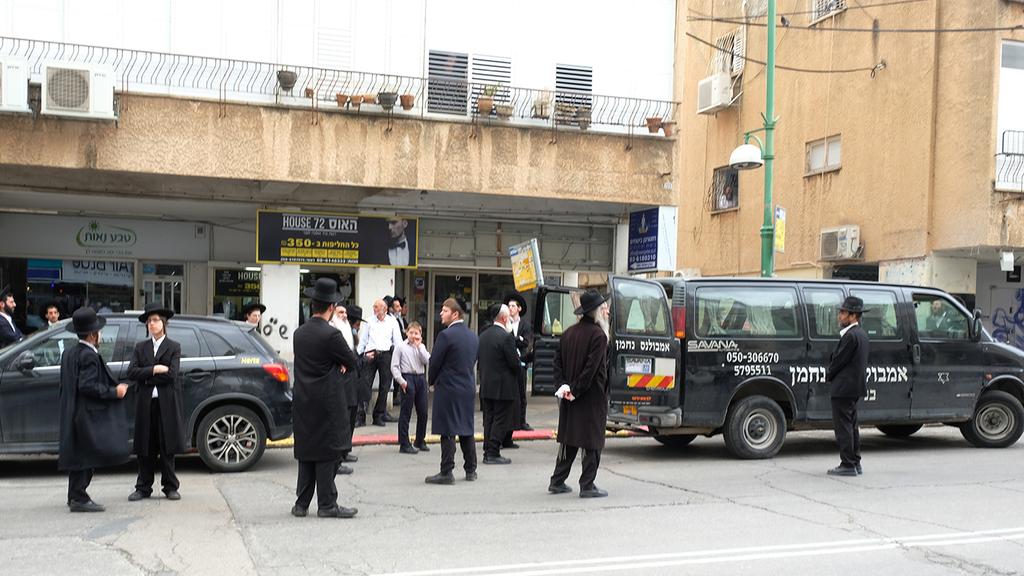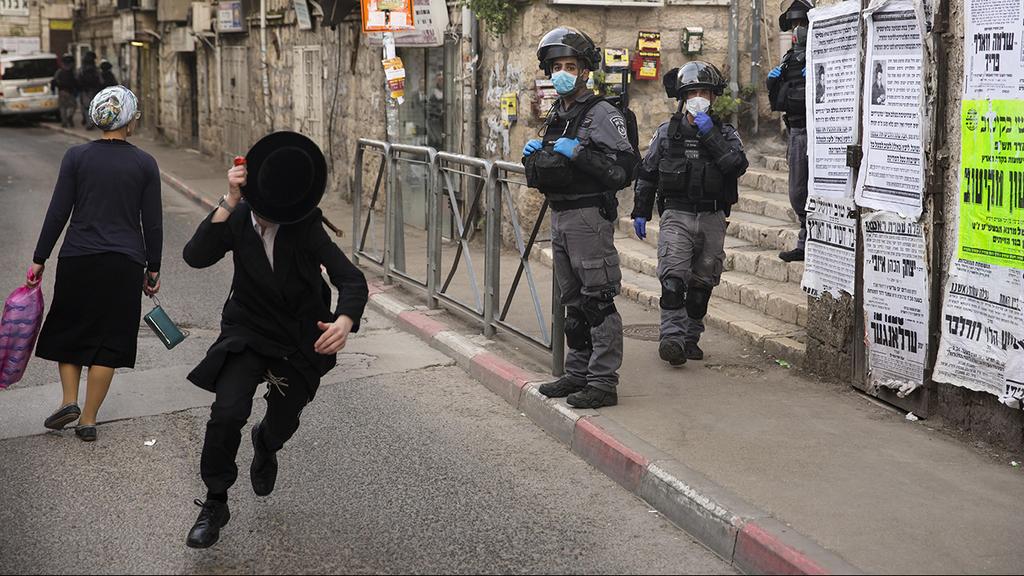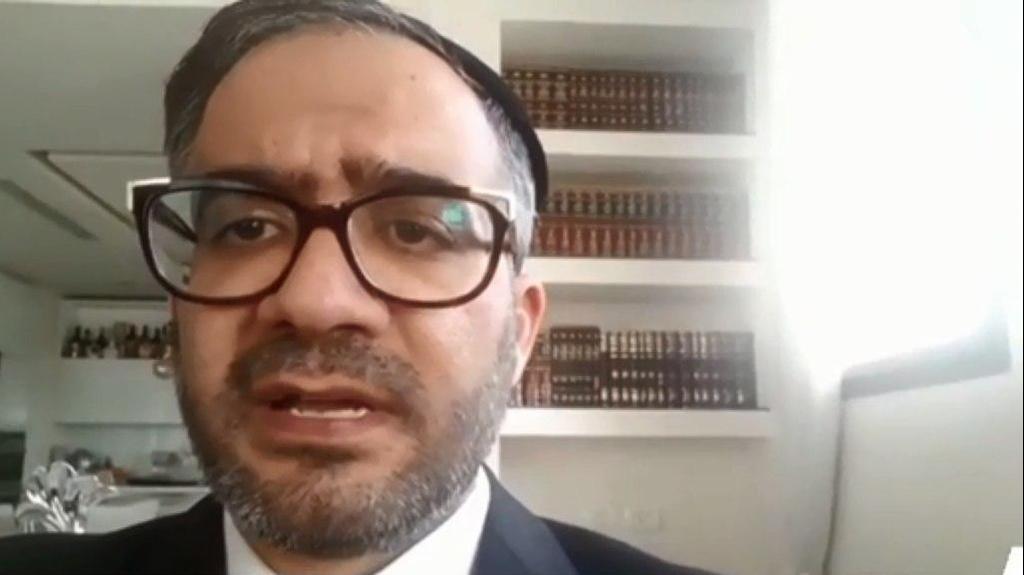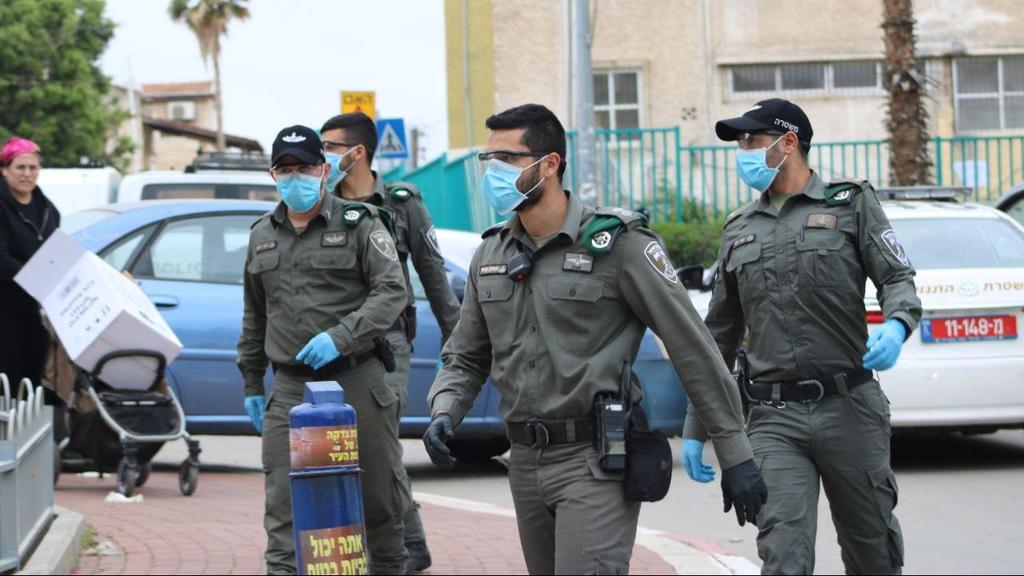Getting your Trinity Audio player ready...
The latest statistics reveal the large percentage of new coronavirus cases in Israel in recent days have been recorded in Bnei Brak and Jerusalem, two high-profile ultra-Orthodox cities.
The Health Ministry confirmed on Wednesday the total number of COVID-19 cases in the country now stands at 5,591, with at least 97 people remaining in a serious condition, including 76 patients on ventilators. The death toll from complications related to coronavirus now stands at 21.
According to the latest data, while in most Israeli cities the number of coronavirus patients over the past 24 hours have increased by less than 15 cases, in Bnei Brak - a center of Haredi Judaism - the number of infected is up by 159 with a total count of 730 diagnoses.
In Jerusalem, meanwhile, the number of new coronavirus cases over the past 24 hours has risen by 131, bringing the total number of infected in the city to 781.
The city of El'ad, Israel's only officially designated religious municipality, has 79 COVID-19 patients, while the Haredi settlement of Modi'in Illit has 64 cases.
In Tel Aviv, where over the past 24 hours the amount of newly-diagnosed has jumped by 14, there 292 coronavirus cases overall.
The Haredi community has recently come under scrutiny for failing to comply with the health officials' guidelines meant to prevent the spread of the virus. On Saturday evening some 400 people participated in a funeral proceeding in Bnei Brak, which police forces failed to stop.
The Haredi city's deputy mayor, Gedaliah Ben-Shimon, says the majority of Bnei Brak's residents do comply with the government directives and it is the job of the police to arrest those who disrespect the orders.
"Lockdown is not an effective thing against the coronavirus war, it's good to fight terrorists, a huge difference," he said, referring to a possibility a lockdown will soon be enforced on areas deemed "problematic" by the authorities.
In addition, a top Health Ministry official said he's "worried" about a potential mass coronavirus outbreak in Bnei Brak.
"I am very concerned about the large number of residents there, it could be [spreading] like wildfire because of the population density," Dr. Boaz Lev, the head of the Health Ministry's epidemic unit, told Ynet on Wednesday.
"The high rate [of infection in Bnei Brak] has surprised us, and the more people we test, the more infected we find ... which will result in a further burden on our health care system," he added.





